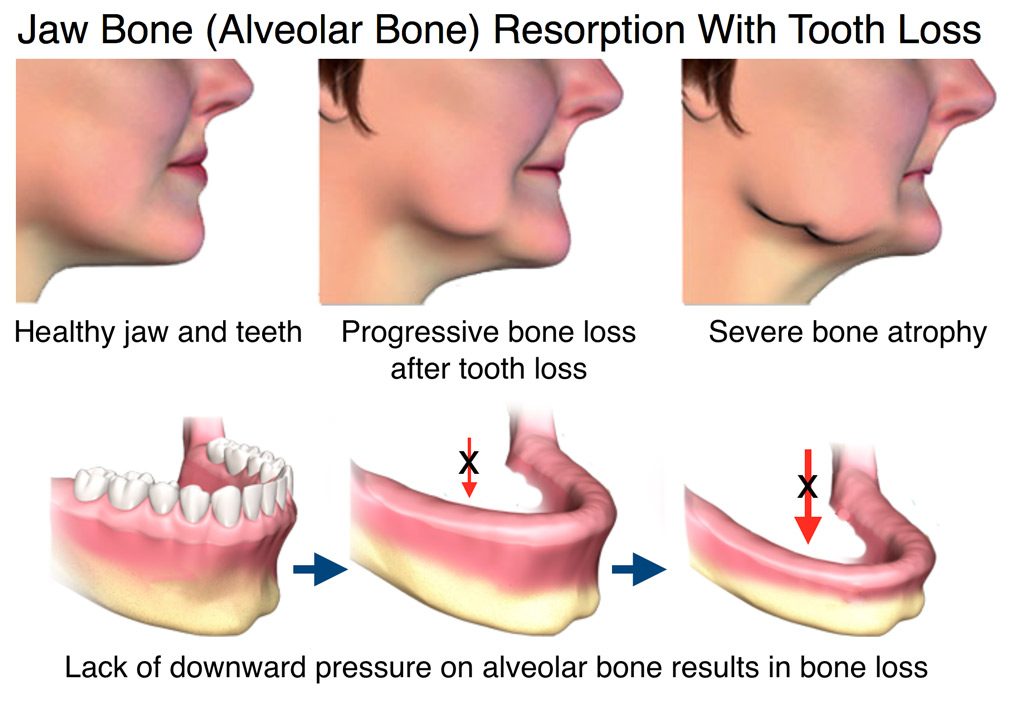9 Secrets Dental Insurance Companies Don't Want You to Know
February 24th, 2020
-
Who really makes the decisions about the quality of care you receive?
Unlike medical insurance, which started being offered in 1850 by the Franklin Health Insurance Company of Massachusetts, Dental Insurance is a fairly recent phenomenon. Dental insurance was first introduced in California in 1954, and quickly rose in popularity. By the 1970’s, these plans were widely available and usually provided a maximum annual coverage of about $1000 (which is still about the maximum today). The first plans didn’t distinguish between in-network and out-of-network providers. They simply established usual and customary rates for the area, and would pay (typically) 100% of preventative care, 80% of minor dental work (such as fillings) and 50 percent of major work (like crowns, bridges, etc).
Today with the advent of PPO the dental insurance landscape has drastically changed and this is how. Dental insurance companies are owned by stockholders, equity firms and investment bankers for the purpose of making money. Unlike medical insurance companies that can run into unlimited liabilities with large claims dental insurance has a cap on the coverage. We will cover this in number 6 but as a matter of fact annual maximums have hardly changed since 1970. In 1970 the cost of an average new car was $3,542. The average price today is $33,560. If dental insurance would have kept up with their annual maximums, today they would cover up to $10,000 a year. Do you see the problem?

Bottom line dental insurance is a very lucrative business. If they want to make more, the company owners decide to reduce their coverage by limiting the coverage on care you can receive without considering the consequences to you. It’s not your health they are worrying about. It’s about how to recover from recent Affordable Care Act losses and their bottom line.
PPO dental insurance plans peaked in 2011 with 65% market share but have been losing ground ever since. As they continue to lower and lower payouts, dentists are dropping out of the networks because they are uncomfortable with the care dictated by the insurance companies and are unable to run a business on the reduced fees. Don’t be surprised if one day the closest dentist in your PPO coverage is in the next state.
It is not uncommon to have dental insurance companies altar the dentist’s treatment plan. The question becomes “How many years have insurance executives in fancy boardrooms spend in dental school? What are their qualifications to decide your care?”
-
Preventive care is controlled by insurance companies and can sometimes be detrimental to your health.
Although experts agree that routine dental exams and regular cleanings may help prevent the incidence of higher-cost treatments such as periodontal surgery, root canals, extractions and fillings and early detection and prevention can minimize your need for more serious dental treatment, insurance companies continue to reduce coverage on those services. First, they restrict the number of visits you may need to control gum disease. Some people who have the genetics and lifestyle that contribute to gum disease need to be monitored more closely. Regardless, insurance companies will only cover a fixed number of visits for gum therapy. Some limit the visits to as few as one covered appointment per year and restrict some test and x-rays necessary to monitor your progress to once every 5 years. Gum disease has been found to have a correlation with heart attacks and even early onset of Alzheimers. Can you imagine if you were a cancer survivor or a patient with acute high blood pressure having such restrictions?
Although with the new digital x-rays patients get 1/20th the radiation from an x-ray, insurance coverage refuse to pay for many x-rays that are necessary for the dentist to monitor your dental health. If something goes undetected until it causes pain, inconvenience or even loss of teeth it doesn’t really matter to the insurance company. Remember they will only cost them a maximum of $1,000 per year.
I have had patients come into the office with an abscessed tooth two weeks after their 6-month re-care visit. The reason this happened was insurance companies would not cover adequate x-rays to detect the situation earlier and the patient decided they knew best.
-
Best care options are frequently denied.
Many times when your dentist is designing a care plan for you, you and he might like to consider optimal care that would include treatments that the insurance company refuses to cover. Your choice is to do what is best and the insurance company pays nothing or except the care that is covered at 50% or less and live with the inconvenience of coping with less than optimal solutions. I have patients who live with a piece of plastic in their mouths, catching food, causing mouth odor and promoting more dental disease because that was all the insurance company would cover.
-
Hidden costs with insurance with deductibles.
In 1970 dental insurance companies typically covered 100% of preventive services (with less restrictions than today) and 80 % of all other work with a $50 deductible on and of the 80% covered services. Today many insurance companies have deductibles as high as $200 but let’s assume it is $50. They may say your preventive is covered at 100% but in the small print it says you must pay the deductible first. So if a cleaning and x-rays comes to $200, you will pay $50. They will cover a 100% of $150, the remainder after the deductible. That would be the same as covering your preventative at 75%. That’s pretty sneaky in my books.
-
Correcting pre-existing conditions are frequently not covered.
Although dental insurance companies claim to cover major reconstructive dental care like removable partial dentures, dentures, bridges and implants to replace missing teeth. Be aware of the small clause “pre-existing conditions”. What this means is if a tooth was missing prior to you being covered the insurance company will NOT pay claims on replacing them. I have had many patients disappointed because they had dreams and aspirations that dental insurance companies would help them finally restore their confidence and a healthy smile, only to find out they had not read the “pre-existing condition” clause.
-
Waiting periods can jeopardize your health.
Many insurance companies have waiting periods before they will cover certain dental procedures. This creates an inconvenience minimally or can actually be detrimental to your health if you are encouraged to wait until your care is covered. I have had a patient wait to get a root canal until her insurance would cover the care. Ultimately she ended up in the hospital with a life threatening infection and experienced a stroke from the accompanying high fevers. Waiting periods promote health risks and bigger problems.
-
Many dental insurance companies create a paperwork barrier to processing your claim.
Supposedly lost coverage requests and Insurance claim denials are a standard operating procedure with most dental insurance companies. It is called “stall as long as you can”. There are only two things that can happen with that game. The dentist gives up on collecting the money he earned and cuts his losses. Or the insurance company gets to keep his earned money a little longer to invest it somewhere else. When a claim is denied or ignored, it is not uncommon for a dental employee to be left on-hold for over 30 minutes. If a dental office has 16 unpaid claims you can see the dentist will have to hire someone full time to do nothing but listen to elevator music while trying to recover the money the office has already worked for. Some dental offices have a policy that if they don’t get paid by the insurance company within 60 days you will pay and join them in the fight to get your insurance benefit back. How well do you like elevator music?
-
Braces are rarely covered or slightly covered.
Although experts know that crooked teeth not only cause psychological and social problems, crooked teeth promote dental disease. It just makes sense when teeth are bunched up and growing in different directions that it is difficult if not impossible to keep them clean. Food trapped between crooked teeth causes tooth decay, gum disease and bad breath. Many insurance companies dodge the correction of crooked teeth with the pre-existing conditions clause. Those companies that do cover that correction sometimes pay benefits as low as 20% of the fees, leaving you with the rest. You will be disappointed if you depend on your dental insurance to straighten your smile.
-
Cosmetic care is never covered.
In today’s competitive world, jobs, opportunities and even romance can be affected by your smile and how you feel about it. Insurance companies don’t care. If you have multiple cavities on front teeth the solution they will pay for is white fillings. Although white fillings are not bad even the best white fillings microscopically look like sandpaper as compared to tooth enamel. So imagine what happens when you eat cherry pie or have a glass of red wine. Yep you’ve got it. White fillings turn a light shade of pink. This might work during breast cancer awareness week but for the other 51 weeks it is not so cool. Also I have seen white filling catch food between the teeth causing tooth decay on adjacent teeth.

I can’t count the times insurance companies have declined to pay for more comprehensive and aesthetic porcelain crowns because they want their customers to experience the consequences of bubble gum and bailing wire dentistry with white filling alternatives.
I had patients who have let insurance companies influence their decision on accepting large white fillings up front come back later regretting their decision. Many of them decided to pay out of pocket to do it right in the first place. Although they are much happier today they paid a heavy price. They paid the deductible and co-pay for the fillings and then for the full coverage porcelain crowns. Plus they had to go through an extra dental procedure.
Solution: You may want to join others who are reaping the benefits of the Custom Dental VIP Savings Plan. It is not a dental insurance plan however it does give you 2 FREE COMPLETE exams, ALL NECESSARY x-rays and 2 FREE Cleanings per year and a savings of thousands of dollars on other services. And the BEST News is:
NO yearly Maximums
NO deductibles
NO claim forms
NO pre-authoriztion requirements
NO health questions
NO one will be denied coverage
No waiting periods (immediate eligibility)
FREE consultations
All of this for 62 cents a day. With the Custom Dental VIP Savings Plan Investment bankers and equity firms will no longer determine your care. Finally, you and your dentist are in control.
To find out more about the Custom Dental VIP Savings Plan call (469)535-2111.






 Website Powered by Sesame 24-7™
Website Powered by Sesame 24-7™